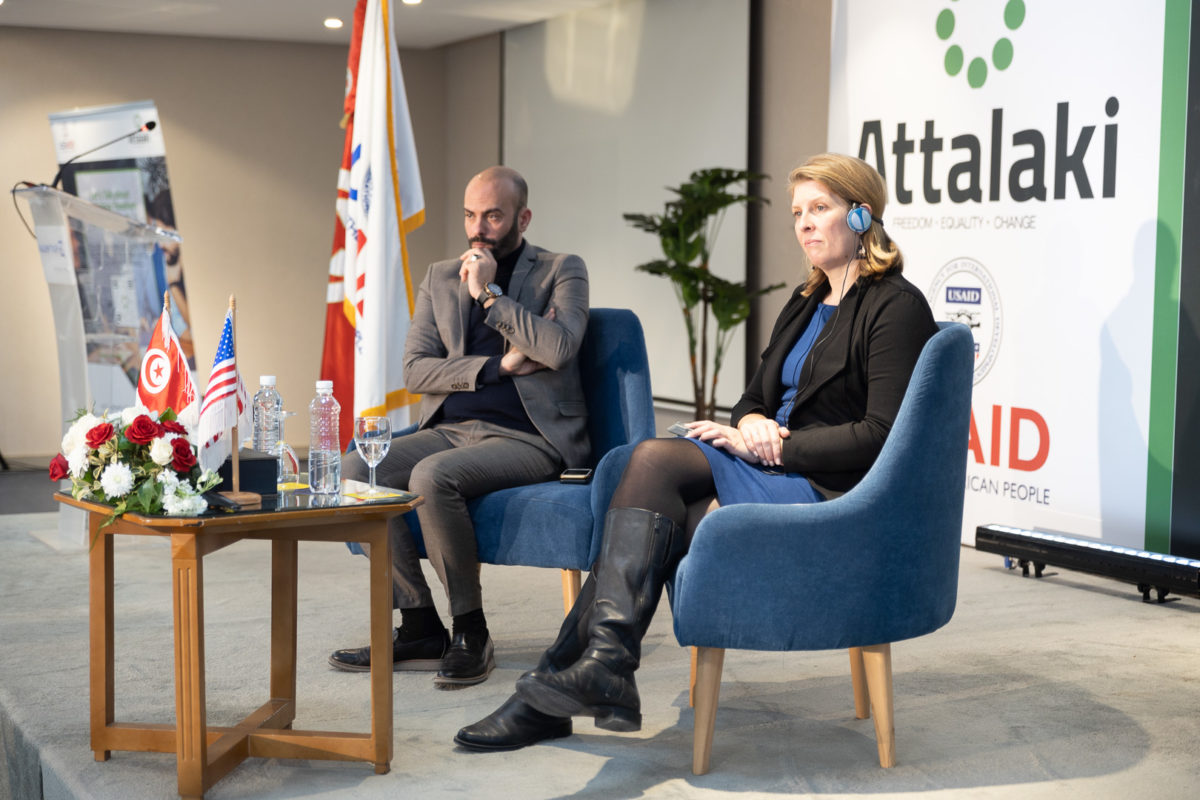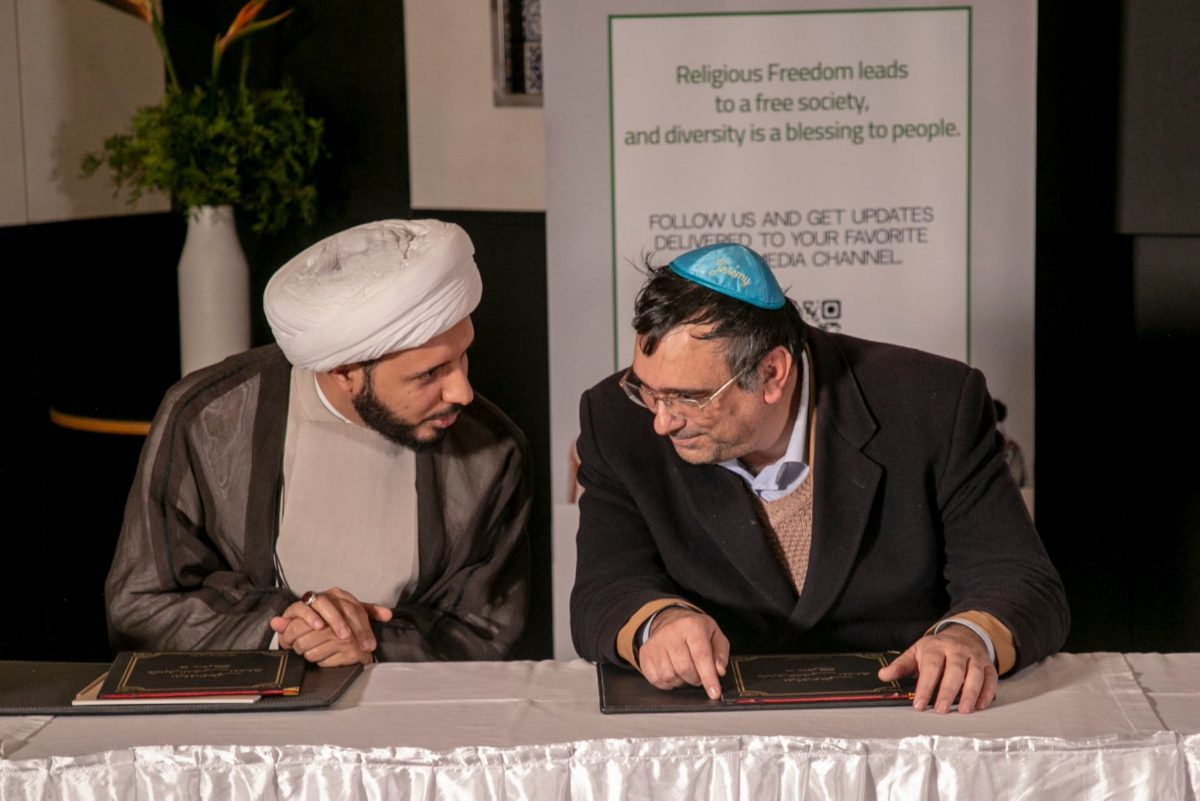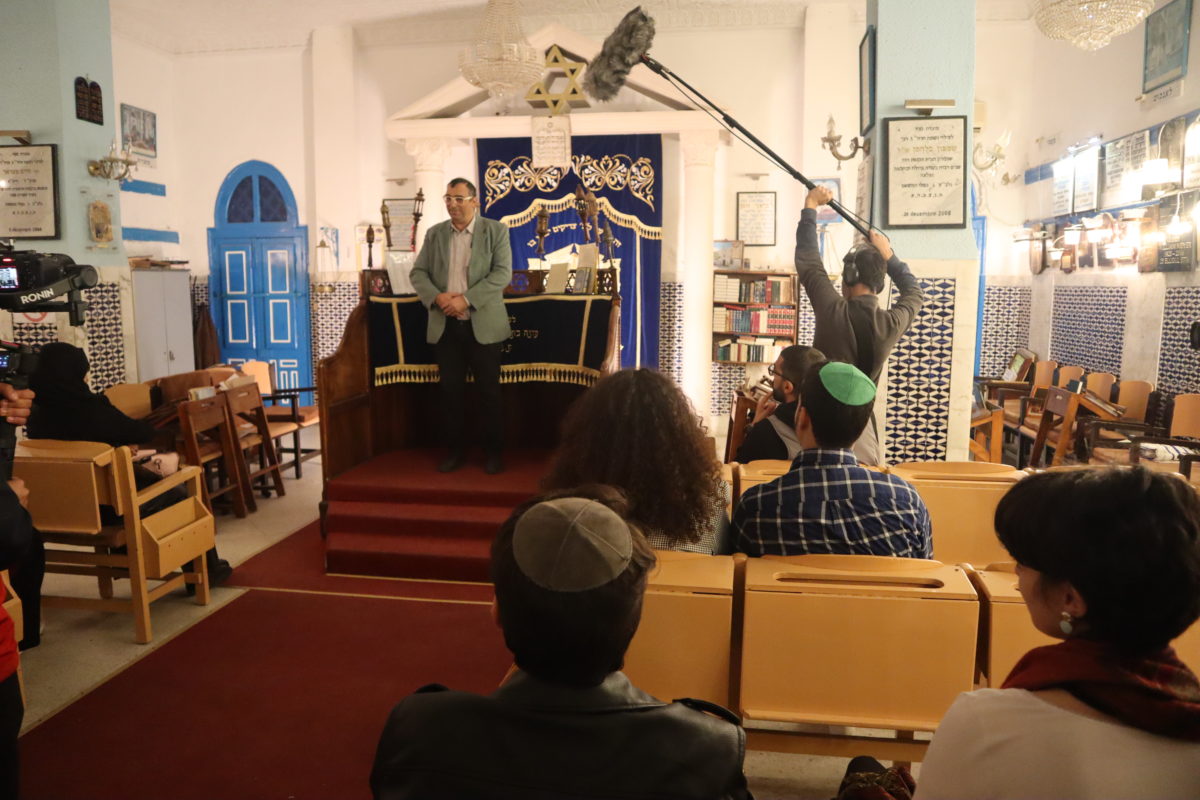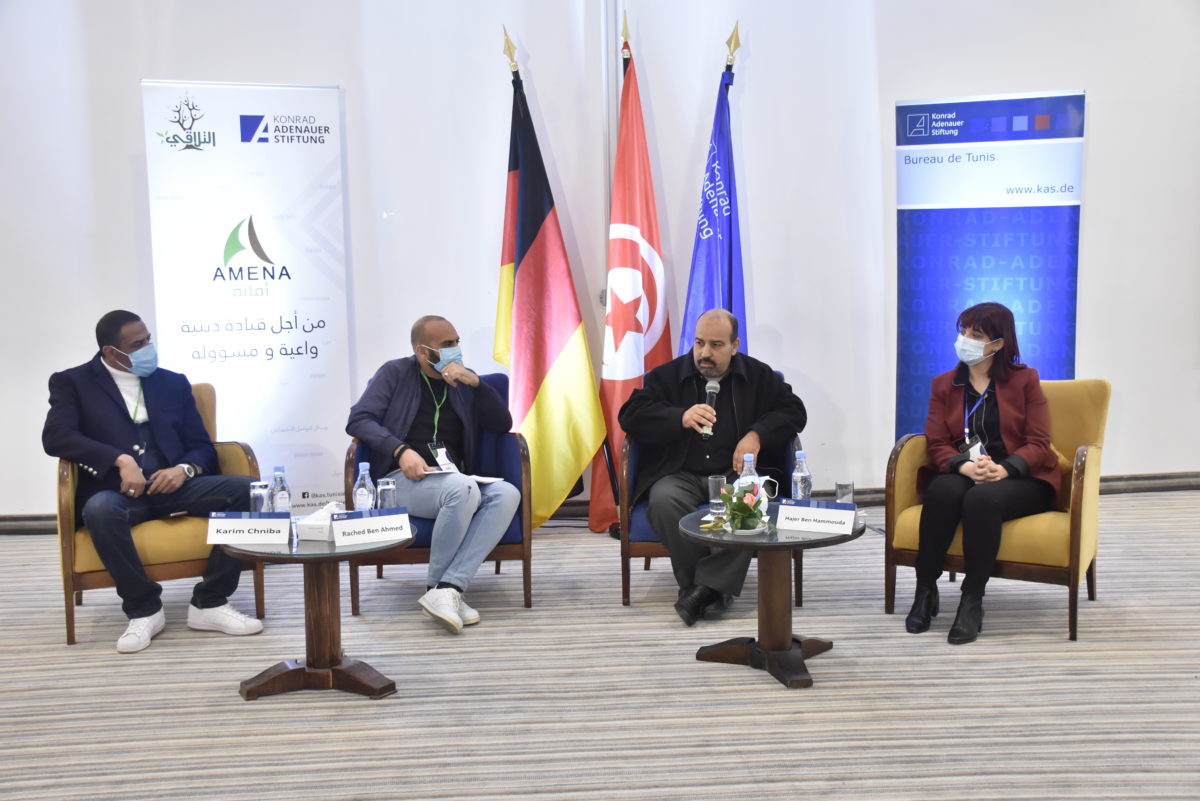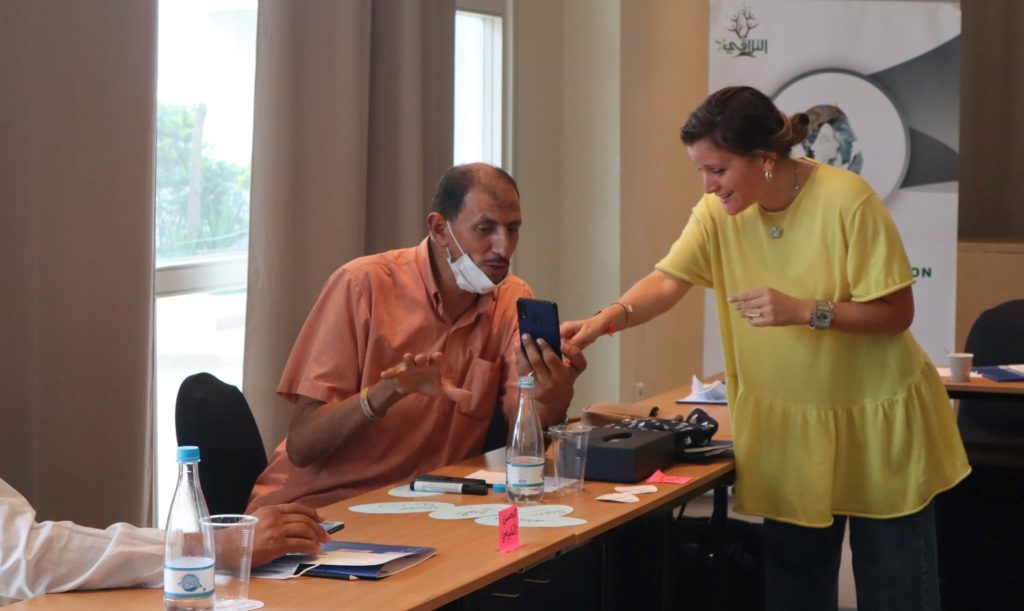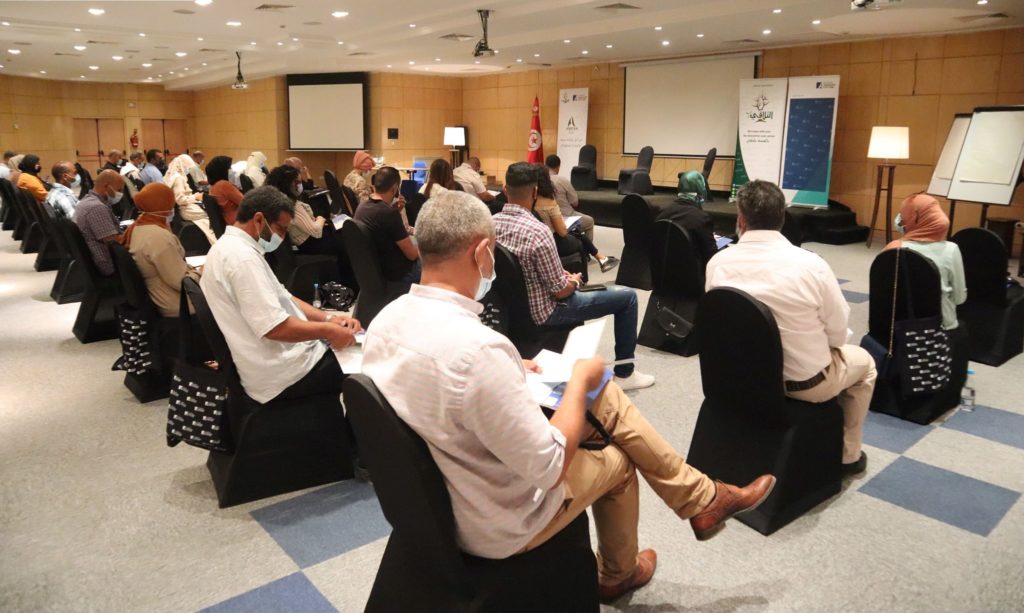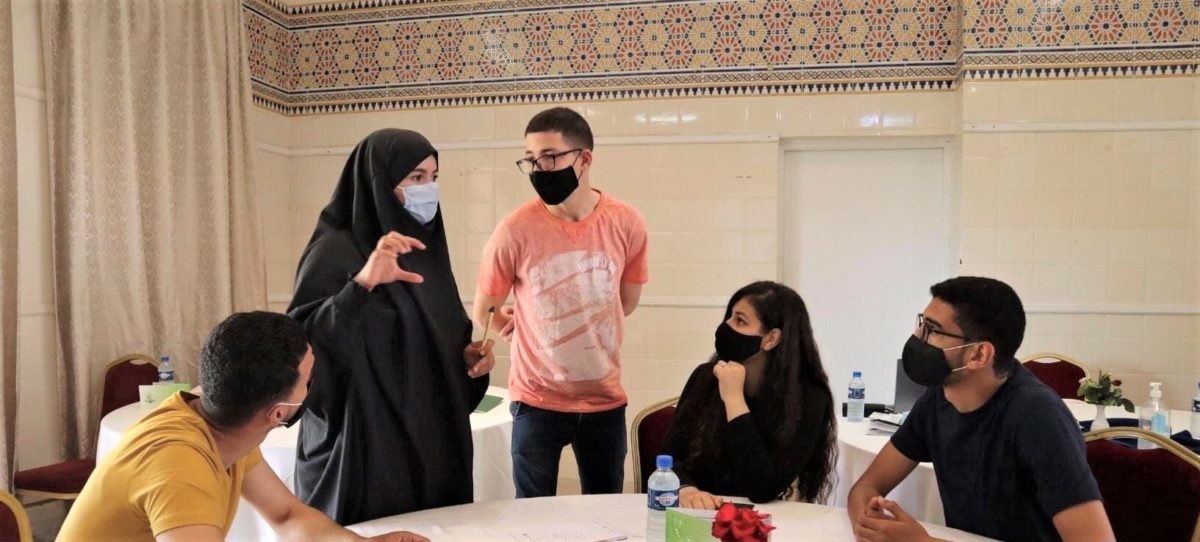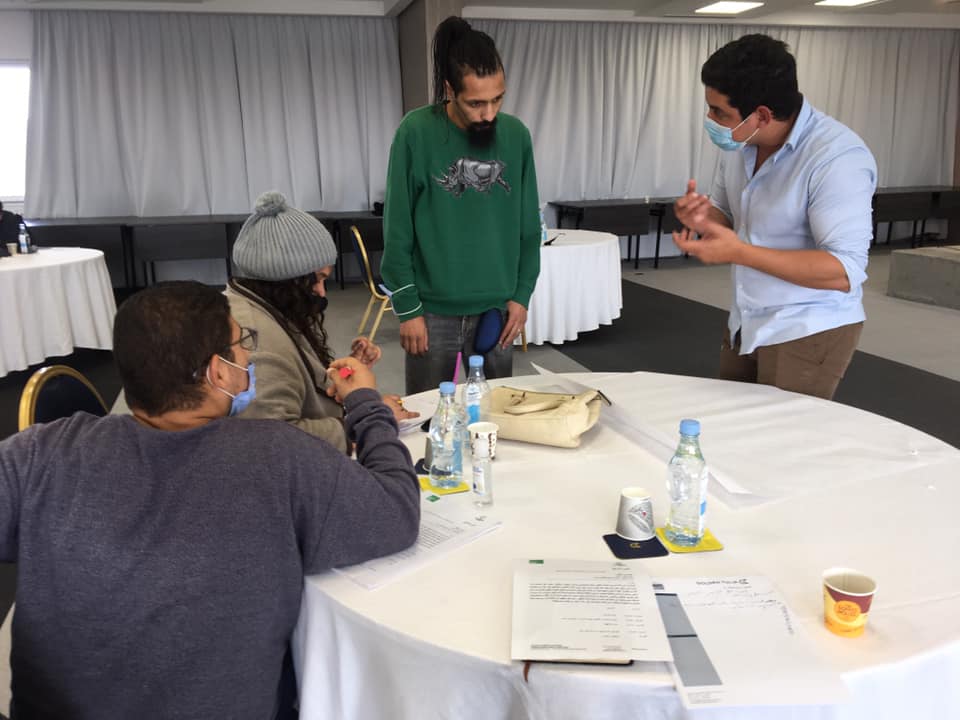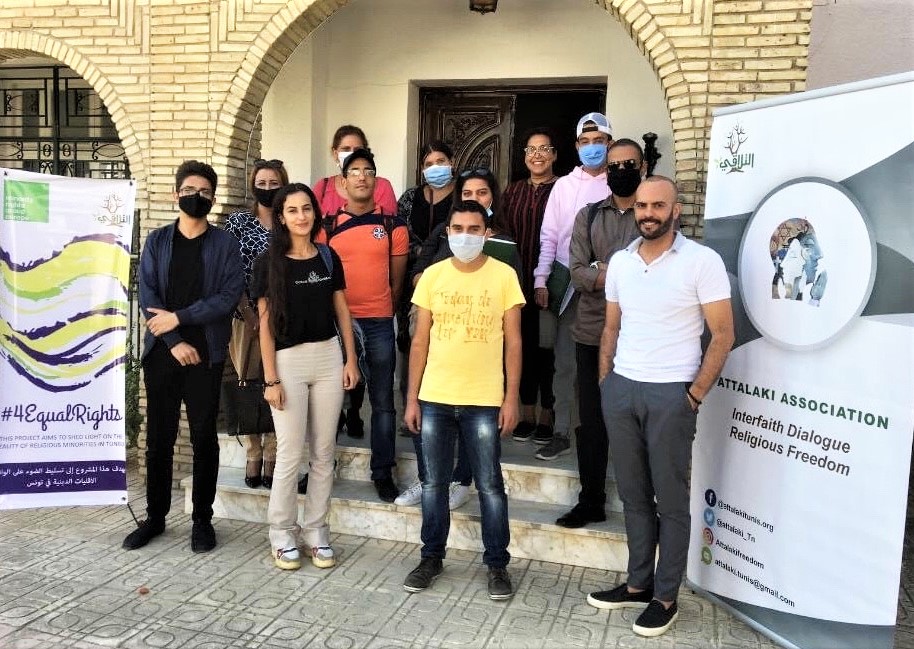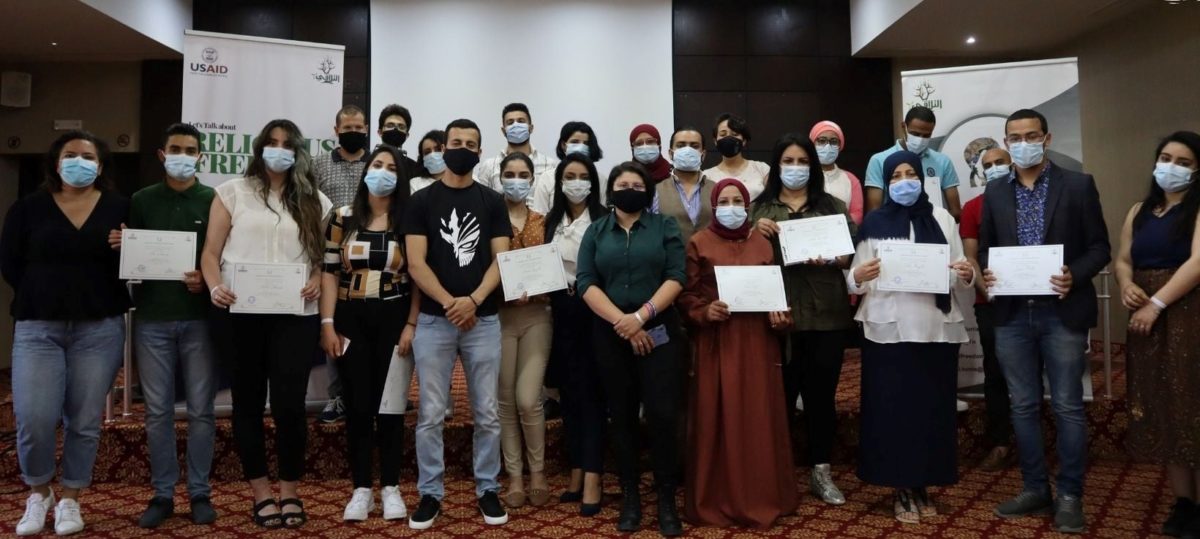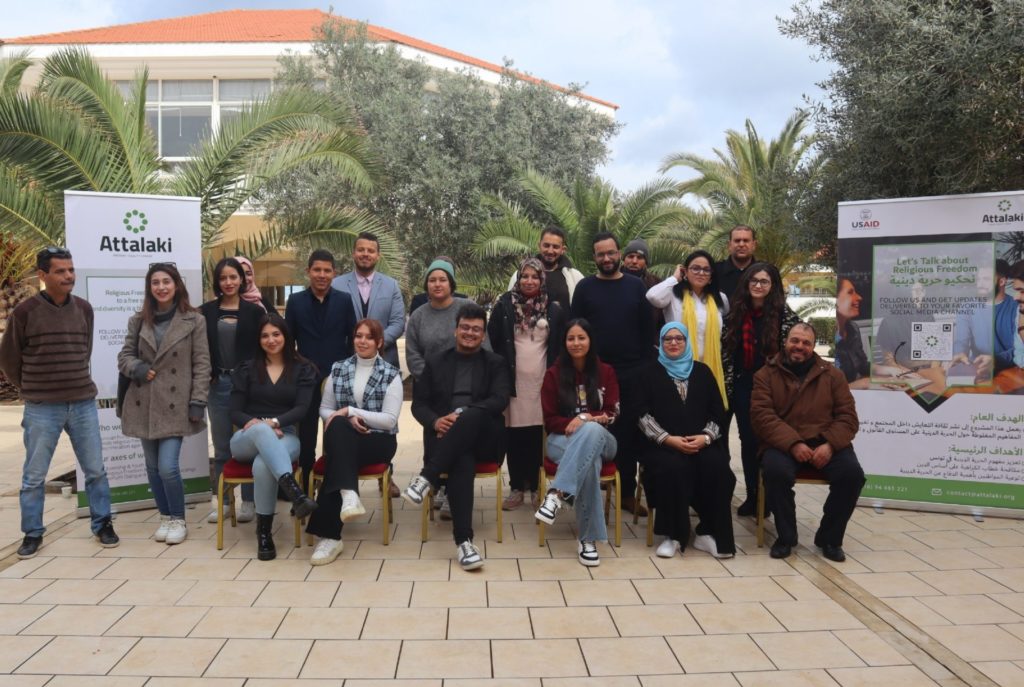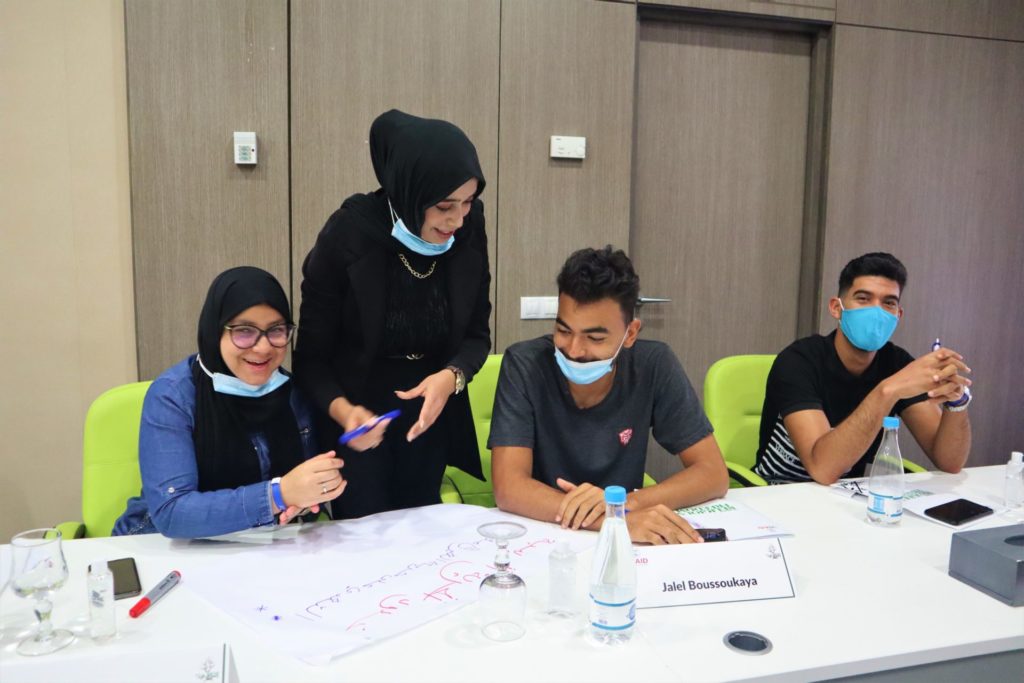Attalaki's celebrates the completion of its project "Let's Talk about Religious Freedom"
On January 28th, 2023, a closing ceremony for the “L’ts Talk about Religious Freedom” project was held in the Capital of Tunisia. The event was attended by more than 100 guests from different regions, and the project was implemented by the Attalaki organization with the support of the United States Agency for International Development (USAID). The ceremony was distinguished by the opening speech delivered by the head of Attalaki, Rashed Massoud Hafnaoui, who expressed his happiness for the success of the project and achieving its goals. He thanked the support provided by the USAID and everyone who participated and helped in the success of this project. The head of Attalaki also talked about the challenges and obstacles faced during the project’s implementation and the means used to overcome them. Ms. Kathleen Maher, the Deputy Head of the USAID Mission, also gave a speech at the event, expressing the pride of the USAID in the success of this project and the support provided to the Attalaki organization, especially since it is the first Tunisian association to receive direct funding from the US government through USAID.
This event was organized to present the results of a project that has been implemented for almost two years in close partnership with USAID and the Attalaki Organization. The project aims to create a free space for constructive and open dialogue among various stakeholders, such as youth, religious leaders, researchers, human rights organizations, and civil society groups, with important participation from religious minorities that face discriminatory practices and restrictions that violate Tunisia’s commitments under international human rights treaties and the Tunisian Constitution.
As part of this project, a series of 12 workshops were held, covering all regions of Tunisia, allowing 244 participants to interact and contribute to various discussions related to religious freedom, peaceful coexistence, and hate speech.
On the other hand, Attalaki organization presented a quantitative and qualitative study on “The Reality of Religious Freedoms in Tunisia” from sociological, constitutional, and legal perspectives, which was prepared simultaneously with the implementation of the project. This study included the distribution of a survey questionnaire between April and September 2022, in which a research sample of approximately 1740 respondents from different age groups and educational levels participated. The aim was to discover the Tunisian society’s perceptions of religious freedom, particularly the issue of diversity and differences in general.
The results of this study were presented by the researcher in religious studies, Sabrine Jlassi, the professor of public law and political science, Khaled Dabbabi, and the professor of public law, Ikram Dridi. Sabrine Jlassi stated that “religious freedom is a concept that many Tunisians have not grasped,” noting that the sample surveyed mostly “rejects the principle of equality among citizens regardless of religion or ideology, rejects freedom to change religion and marry non-Muslims, and refuses to bury non-Muslims in Muslim cemeteries or allocate separate cemeteries for them, or their right to a place of worship.”
She explained that 43% of respondents (a representative sample of all segments) “expressed their explicit opposition to full equality among citizens, regardless of their religions,” pointing out that this percentage increases further in relation to equality in inheritance, as 59% of respondents were against equality in inheritance. This suggests, according to her estimation, that “the conservative Muslim majority does not see gender equality as fundamental to its creed, but finds more than one reason to reject it, including social customs derived from religious heritage.”
The social science researcher further clarified that 67% of respondents “acknowledge that violations and discrimination based on religion and belief affect women and men equally,” indicating that “despite the period of post-revolution openness, which included some freedom, especially freedom of expression, this freedom automatically fades away when it comes to religious and doctrinal matters.”
She considered that the legislative and judicial system in Tunisia “represents the product of a juristic thought that has produced accumulations that prevent actual and real coexistence of religious groups,” confirming that “54% of respondents reject building places of worship for non-Muslims, and 57% reject teaching other monotheistic religions.”
Ikram Dridi, on the other hand, explained that “despite the reliance of the Tunisian state on positive laws, the executive authority has drawn the content of its work from Islamic law, creating a serious confusion between what is legal and positive and what is juristic and legitimate.”
On his part, Professor Khaled Dabbabi emphasized that the establishment of a true rule of law based on full citizenship and non-discrimination requires primarily the development of a state policy that combines the efforts of all stakeholders and official parties in order to ensure a real democratic system based on transparency, accountability, efficiency, equality before the law, and the protection of rights, freedoms, and human dignity. He noted that the judiciary plays a pivotal and important role in promoting human rights in its entirety and comprehensiveness, and therefore a judicial system must provide the basic guarantees for respecting and preventing violations of these rights, so that they do not become mere declarations of intent with no impact on life. He stressed the need for judges to uphold the supremacy of the constitution and international treaties to which their country is a signatory, and to break away from the application of Islamic law in favor of positive laws. He also called for the protection of freedoms and rights instead of restricting them whenever there is room for interpretation and discretionary power of the judge, and for neglecting the application of legal provisions that are in conflict with the constitution and international treaties until they are amended.
This celebration ended with fruitful discussions among participants, but it also formed a favorable opportunity for dialogue in a safe and peaceful space where everyone felt appreciated and respected for their identities and affiliations by the organizers and supervisors of the organization. Some participants emphasized the necessity of continuing to work towards consolidating these concepts that have remained ambiguous and incomprehensible to a wide segment of Tunisians, praising the courage shown by the team of the Talaqi organization in presenting such topics that have remained taboo due to fear of societal, governmental, and religious reactions. Especially since the “Let’s talk about Religious Freedom” project was not limited to implementation in provinces close to the capital, but extended to provinces that are considered closed and more conservative in the far southeast, west, northwest, and center. They called on the Attalaki organization and Tunisia’s international partners to continue supporting such projects as they break away from the stereotypes that portray differences as a danger threatening society and its cohesion.
